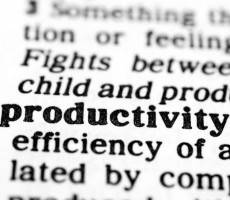July 2, 2016
Beyond monoculture + Future shock + Confusion over productivity 0
 In this week’s Newsletter; Mark Eltringham pays tribute to futurologist Alvin Toffler who died this week and is famed for introducing the concept ‘Future shock’; and Charles Marks looks at the ways our noisy world was foretold by some of the 20th centuries’ greatest minds. A study finds that people find meetings more useful than is widely reported; many office workers struggle to understand the meaning of productivity; and spending on workplace technology doubled over the past five years. Older workers – not millennials – are most positive about working freelance; more US over 65s are working now than at any time; and agile workers report the highest levels of productivity. You can download our new Briefing, produced in partnership with Boss Design which examines the link between culture and workplace strategy and design; visit our new events page, follow us on Twitter and join our LinkedIn Group to discuss these and other stories.
In this week’s Newsletter; Mark Eltringham pays tribute to futurologist Alvin Toffler who died this week and is famed for introducing the concept ‘Future shock’; and Charles Marks looks at the ways our noisy world was foretold by some of the 20th centuries’ greatest minds. A study finds that people find meetings more useful than is widely reported; many office workers struggle to understand the meaning of productivity; and spending on workplace technology doubled over the past five years. Older workers – not millennials – are most positive about working freelance; more US over 65s are working now than at any time; and agile workers report the highest levels of productivity. You can download our new Briefing, produced in partnership with Boss Design which examines the link between culture and workplace strategy and design; visit our new events page, follow us on Twitter and join our LinkedIn Group to discuss these and other stories.


































June 24, 2016
Property and workplace experts have their say on the Brexit outcome 0
by Mark Eltringham • Architecture, Comment, Facilities management, Property, Workplace, Workplace design
(more…)